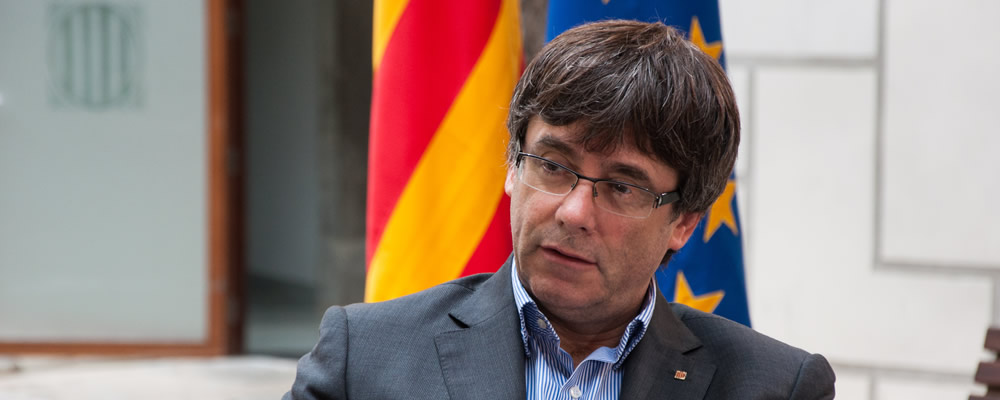Although growth in the Eurozone construction output lost some momentum in August this was not enough to significantly weigh down the Euro.
Confidence in the underlying strength of the Eurozone economy persists, with the construction sector still showing a solid improvement.
Commentary from European Central Bank (ECB) President Mario Draghi also failed to have any particularly detrimental impact on EUR exchange rates on Wednesday morning.
As Draghi primarily focused on calling for Eurozone leaders to engage in structural reforms in order to support the domestic economy the mood towards the single currency remained relatively positive.
Even so, the Euro remains vulnerable to downside pressure in the near term as the Catalan crisis shows no signs of a diplomatic resolution.
Following the arrest of two key members of the Catalan independence movement hopes for constructive dialogue between the Spanish government and the regional administration have faded further.
With Thursday’s deadline for the Catalan administration to make clear whether it has officially declared independence or not likely to pass without any such clarification the Euro Pound exchange rate could slump sharply.
Any signs of an escalation in the dispute could see the single currency trending significantly lower against its rivals ahead of the weekend.
BoE Rate Hike Bets Falter as Inflation Continues to Outstrip Wages
The latest raft of UK labour market data proved somewhat mixed, preventing the Pound from finding any solid rallying point.
While average weekly earnings unexpectedly picked up from 2.1% to 2.2% in the three months to August this was not enough to improve the outlook for wage growth.
As wages continue to lag significantly behind inflation this is likely to impact the wider economy, with strong levels of consumer spending having been a major driver of growth in recent months.
James Smith, economist at ING, noted:
‘Whilst we expect headline inflation to peak at 3.1% next month, the gap between CPI and wage growth is likely to stay fairly wide for some time to come. This will keep a lid on consumer spending and we may see some further evidence of this in tomorrow’s retail sales report, as households continue to take a cautious approach to discretionary spending.
‘So what does this mean for interest rates? Whilst we expect a November hike from the Bank of England – the committee is keen to get out of emergency mode – all of this suggests that the amount of subsequent tightening from the Bank will be limited.’
The sluggish nature of UK wage growth may be enough to deter some Bank of England (BoE) policymakers from voting for an imminent interest rate hike, limiting demand for the Pound.
Any signs of weakness in Thursday’s retail sales data could drive Sterling lower, as this may prompt markets to further revise the high odds of a BoE rate hike priced into GBP exchange rates.
Current EUR GBP Interbank Exchange Rates
At the time of writing, the Euro Pound exchange rate was trending narrowly around 0.8914. Meanwhile, the Pound Euro exchange rate was making limited gains in the region of 1.1215.



